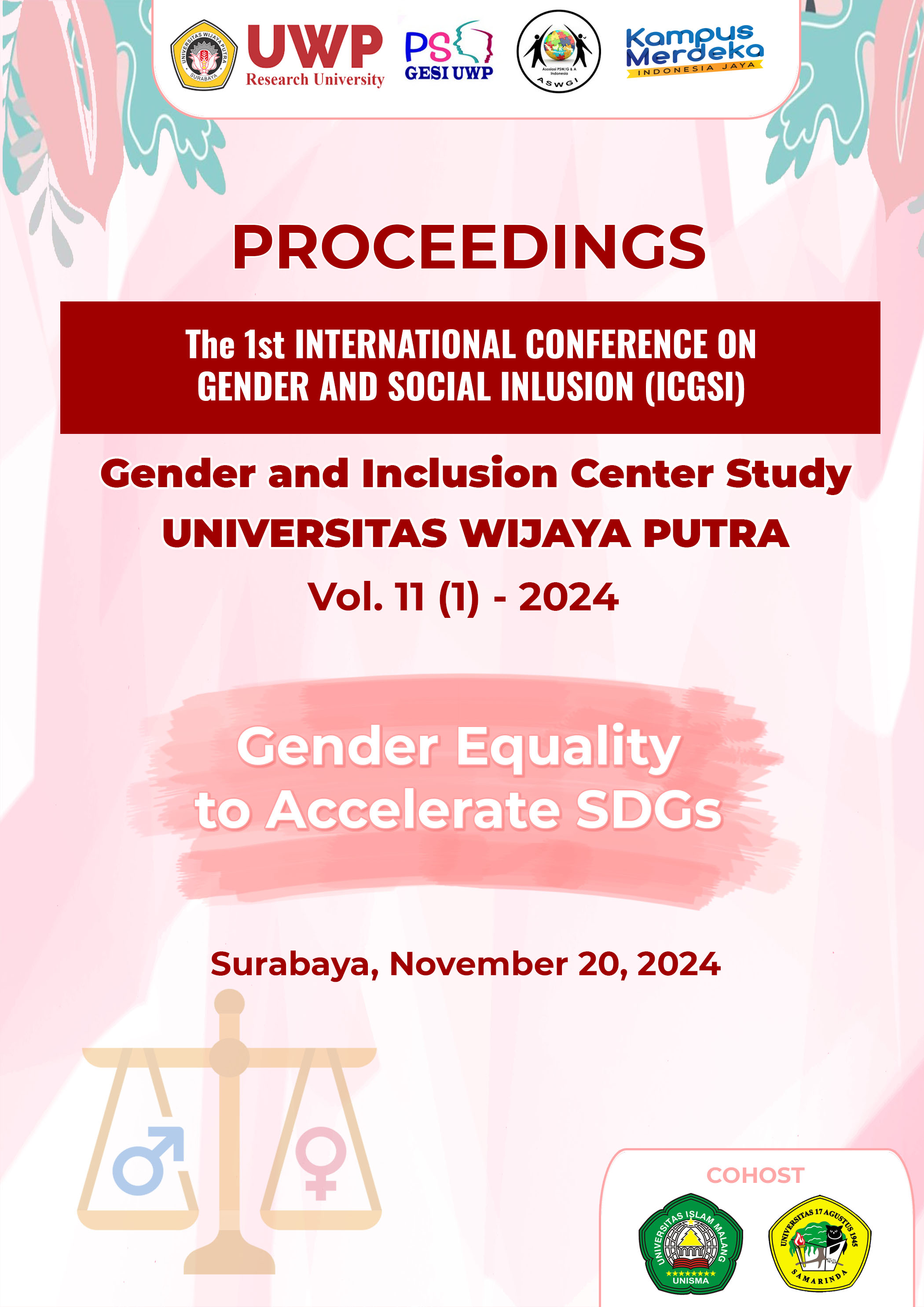Utilization of Digital Financial Facilities by Female MSMEs: A Systematic Literature Review
DOI:
https://doi.org/10.38156/gesi.v9i1.401Kata Kunci:
Digital financial facilities, Female Entrepreneurs, msmeAbstrak
This study aims to analyze the use of digital financial services by female MSMEs in Indonesia, with a focus on factors that influence the use of digital services and the challenges faced. Based on a systematic literature review approach from several previous studies of the same type, the results of the study indicate that low digital and financial literacy are the main obstacles for female MSMEs in optimally utilizing financial technology. In addition, social and cultural factors, such as the dual role of women and negative perceptions of the security of digital transactions, also hinder the adoption of technology. On the other hand, support from financial institutions and the government in the form of training and increasing access to digital infrastructure has been proven to accelerate the adoption of digital financial services. This study emphasizes the need for more inclusive policies that are oriented towards women's empowerment, as well as strengthening collaboration between the government, financial institutions, and the community sector to increase digital financial inclusion among female MSMEs. These findings provide valuable insights for policy makers and related parties in developing more effective strategies to encourage digital transformation in the female MSME sector.
Referensi
Bank, T. W. (2021). Bukan Sekedar Unicorn :Pemanfaatan Teknologi Digital untuk Inklusi di Indonesia.
Barbara Kitchenham. (2014). Procedures for Performing Systematic Reviews. Keele University Technical Report, 33(2004), 1–26. https://www.researchgate.net/publication/228756057
Denzin, N. K., & Lincoln, Y. S. (2018). The SAGE Handbook of Qualitative Research (5th ed.). SAGE Publications.
Gates, B. & M. (2021a). Financial Inclusion for Women in the Digital Age: The Role of Technology in Supporting Women’s Economic Empowerment. Gates Foundation.
Gates, B. & M. (2021b). The Impacts of Digital Financial Services on Women’s Economic Empowerment. Gates Foundation.
Hammond, A. P. and N. (2002). Systematic Reviews: The Experiences of a PhD Student. Psychology Learning and Teaching, 2(1), 32–35. https://doi.org/http://dx.doi.org/10.2304/plat.2002.2.1.32
Kementerian Keuangan Republik Indonesia. (2022). Upaya Peningkatan Akses Perempuan Terhadap Layanan Keuangan Formal. Kementerian Keuangan RI, 1–36.
Kusumawati, R., & Kurniasih, A. (2022). Peran Literasi Digital dalam Mendukung Keberlanjutan Usaha Mikro di Indonesia. Jurnal Teknologi dan Inovasi Bisnis, 8(2), 114–125.
Lee, I., & Shin, J. (2018). Digital finance: A new paradigm of financial inclusion. Journal of Financial Innovation, 4(1), 19–27.
Lee, I., & Shin, Y. J. (2018). Fintech: Ecosystem, Business Models, Investment Decisions, and Challenges. Business Horizons, 61(1), 35–46.
Marcellina, A. I., & Santoso, W. (2020). Inklusi Keuangan Digital dan Pemberdayaan Ekonomi Perempuan di UMKM. Jurnal Bisnis dan Ekonomi, 47(1), 121–138.
Mulyani, D., & Rahayu, S. (2021). Digital Financial Inclusion and SMEs’ Access to Finance in Indonesia: A Gender Perspective. International Journal of Economics and Financial Issues, 11(4), 20–29.
Nuryanto, D., & Kurniawati, R. (2019). Pengaruh Literasi Keuangan terhadap Kinerja UMKM di Era Digital. Jurnal Manajemen dan Bisnis Indonesia, 12(2), 37–45.
OJK, O. J. K. (2022). Laporan Tahunan OJK 2022: Inklusi Keuangan di Indonesia. OJK.
Philippe Le Houérou. (2016). Experience matters: Vol. (Nomor).
Rahayu, R., & Day, J. (2017). E-commerce Adoption by SMEs in Developing Countries: Evidence from Indonesia. Telematics and Informatics, 34(1), 188–200.
Rahmawati, S., & Hidayat, R. (2021). Digital Literacy and Financial Inclusion: An Empirical Study in Indonesian Small and Medium Enterprises. Asian Journal of Business and Management, 8(2), 53–64.
Ramdlaningrum, H., Ismah, N., Mawesti, D., Aidha, C. N., Armintasari, F., & Ningrum, D. R. (2022). Pemberdayaan ekonomi untuk UMKM yang dipimpin perempuan di pedesaan Indonesia: Pembelajaran dari CSO Indonesia. 1–70.
Santoso, E., & Widiastuti, R. (2019). Kendala dalam Implementasi Teknologi Keuangan di Kalangan UMKM. Jurnal Ekonomi Digital, 5(4), 56–72.
Susanti, A., & Widyaningrum, T. (2020). Women’s empowerment through financial technology: A study of Indonesian SMEs. Journal of Economic Empowerment, 12(3), 105–120.
Susanti, R., & Widyaningrum, F. (2020). Peran Pemerintah dalam Mendorong Digitalisasi Keuangan di Kalangan Pengusaha Perempuan UMKM. Jurnal Inovasi Ekonomi, 11(3), 88–99.


